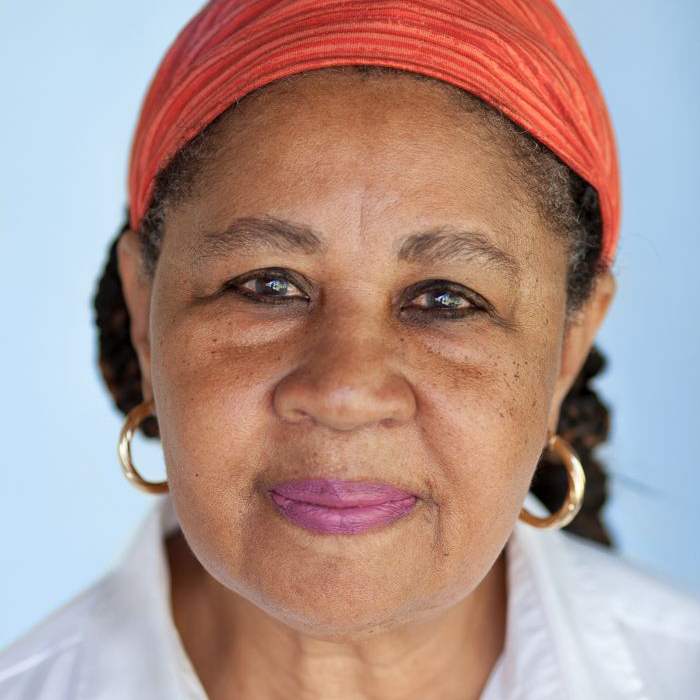
Jamaica Kincaid
Writer Jamaica Kincaid is the 2024-25 Avenali Chair in the Humanities.
One of the most celebrated writers of her generation, Jamaica Kincaid offers a clear, illuminating vision of humanity. Written in a deceptively simple and unadorned style, Kincaid’s books are informed by her status as an uprooted subject, born on the Caribbean island of Antigua but living in North America. Kincaid deals with such core human themes as coming-of-age, the necessity of separation from parents, and the forging of personal identity.
After leaving Antigua for New York to work as an au pair, Kincaid studied photography at the New York School for Social Research and attended Franconia College in New Hampshire. A staff writer at the New Yorker from 1974 to 1996, she published her first book, a collection of pieces for the New Yorker called At the Bottom of the River, in 1983. Her first novel, Annie John, the coming-of-age story of a willful ten-year-old growing up on Antigua, followed in 1985. With thirteen translations, it is estimated to be the most translated book by an Antiguan author. Further novels include Lucy, the story of a teenage girl from the West Indies who comes to North America to work as an au pair for a wealthy family; The Autobiography of My Mother, a novel set on the island of Dominica and told by a 70-year-old woman looking back on her life; and Mr. Potter, which follows the life of an illiterate taxi chauffeur.
Kincaid’s treatment of the themes of family relationships, personhood, and the aftermath of colonialism reach a fierce pitch in The Autobiography of My Mother and My Brother, an account of the death from AIDS of Kincaid’s younger brother. Writing in the New York Times, Anna Quindlen described the book as “a sustained meditation on the grinding wheel of family, with mother always at the hub . . . a memoir about death that portrays it as it is, not as we would have it be, as we so often tailor it both in memoir and fiction.” Kincaid’s novel See Now Then, a nonlinear portrait of a family living in a small New England village, was a New York Times bestseller and won the American Book Award from the Before Columbus Foundation in 2014.
Kincaid's fascination with gardening and botany has led to several works on the subject, including the books My Garden and Among Flowers: A Walk in the Himalaya, and her acclaimed essay “The Disturbances of the Garden,“ which explores the legacies of colonialism. This interest also informs her latest book, a collaboration with the artist Kara Walker entitled An Encyclopedia of Gardening for Colored Children. In this witty, deeply original book populated with imaginative watercolor illustrations from Walker, Kincaid offers an ABC of the plants that define our world and reveals the often brutal history behind them.
A member of the American Academy of Arts and Letters, Kincaid is the 2022 recipient of the Hadada Award for lifetime achievement from the Paris Review. Her other accolades include the Lannan Literary Award for Fiction, the Anisfield-Wolf Book Award, the Dan David Prize for Literature, the Clifton Fadiman Medal, a Guggenheim Foundation Fellowship, and the Prix Femina Étranger award. She teaches in the English, African and African-American Studies departments at Harvard University and lives in Vermont.
For the Avenali Lecture, Kincaid is in conversation with Stephen Best, Rachael Anderson Stageberg Professor of English, director of the Townsend Center, and president of the Consortium of Humanities Centers and Institutes. A scholar of American and African American literature and culture, he is the author of None Like Us: Blackness, Belonging, Aesthetic Life and The Fugitive's Properties: Law and the Poetics of Possession. He has been a visiting faculty member at Williams College, the Humanities Council at Princeton University, and the School of Criticism and Theory at Cornell University.